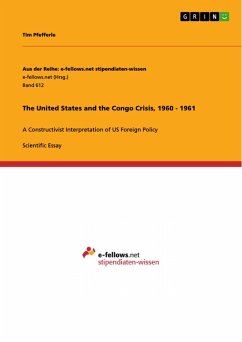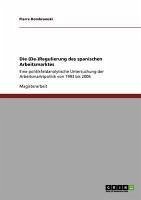Seminar paper from the year 2009 in the subject Politics - Region: Africa, grade: 1,7, University of Cologne (Forschungsinstitut für Politische Wissenschaft und Europäische Fragen), course: Comparative Political Economy: Varieties of Capitalism, language: English, abstract: Since the last decade scientific research on capitalism has experienced a noticeably grown attention among scholars as well as politicians. One of the most discussed approaches in this field of comparative analysis of political economy is the 'varieties of capitalism' theory1 developed by Peter Hall and David Soskice. Their approach basically focuses on how different actors may behave in a certain politico-economic state configuration and on how far this configuration can determine a national type or variety of capitalism as well as the economic success of a political economy. This approach, though, has been designed with a view to the so-called 'developed economies', which are to be found in Western and Central Europe as well as in North America. In the era of globalization other economies have come into play, with their performances ranging from real success stories, as in several Asian economies, to considerable failure, as in most marginalized Sub-Saharan African economies. After presenting Hall and Soskice's approach and some of its criticisms in order to give a conceptual framework, this paper will provide a very brief overview of the political economy of colonialism, followed by a case-study analysis of the contemporary political economies of Uganda and the Democratic Republic of Congo (DRC). The main research question is to identify to which extent varieties of capitalism imported from colonial powers have fashioned today's economies in the chosen cases as 'economic models' or how far the empirically established colonial economic systems are responsible for post-colonial developments. The former colonial power in Uganda, Great Britain, will be considered as a Liberal Market Economy, whereas DRC's colonial power, Belgium, will be assigned the Coordinated Market Economies2 type. In order to avoid analytical shortcomings, this paper also tries to take into consideration the discrepancy between those models and the colonial reality as well as postcolonial developments, which have evolved due to domestic characteristics or as a consequence of a globalizing political economy.
Dieser Download kann aus rechtlichen Gründen nur mit Rechnungsadresse in A, B, BG, CY, CZ, D, DK, EW, E, FIN, F, GR, HR, H, IRL, I, LT, L, LR, M, NL, PL, P, R, S, SLO, SK ausgeliefert werden.









